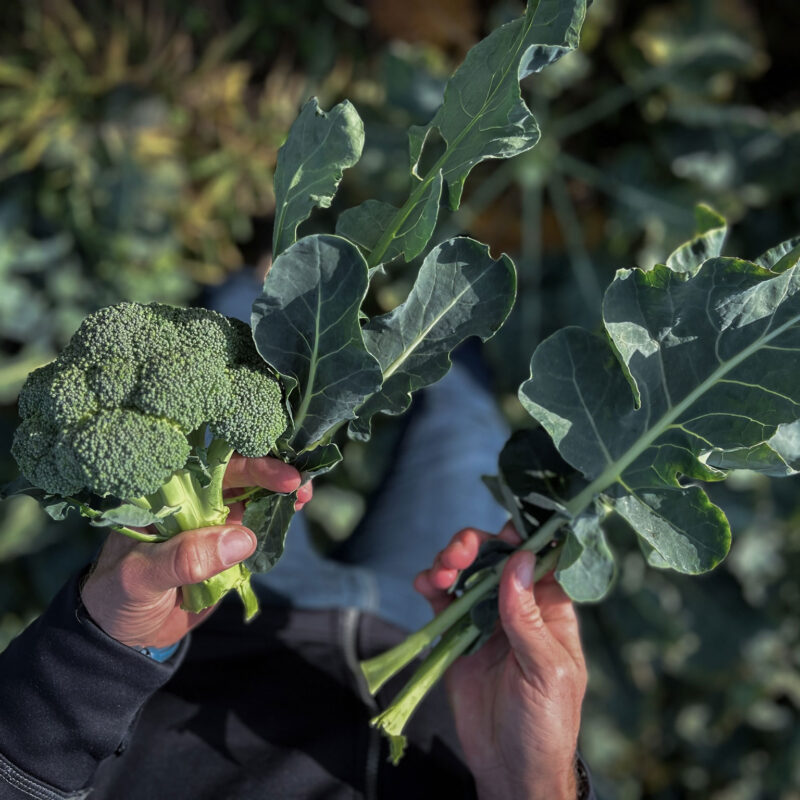The Swedish Soy Dialogue
Soy production has become a growing consumer issue. More and more customers are demanding that companies take responsibility for the production conditions of the soy they sell. Today, soy is one of the world's most produced commercial crop, with the majority used as animal feed. While soy cultivation contributes to economic development, it also affects the environment and the climate. How do we ensure that all soy that reaches Swedish consumers is produced responsibly? How can the Swedish market, albeit small, work together for better soy production conditions? These are examples of issues tackled by the Swedish Soy Dialogue - a unique cross-sectoral collaboration between Swedish feed companies, food producers, food retailers and associations, that. Between 2018-2021, Axfoundation hosted the Swedish Soy Dialogue, coordinating and developing the work within the network. Since 2022, the work is instead conducted via the new Swedish platform for high-risk commodities, hosted by ETI Sweden.
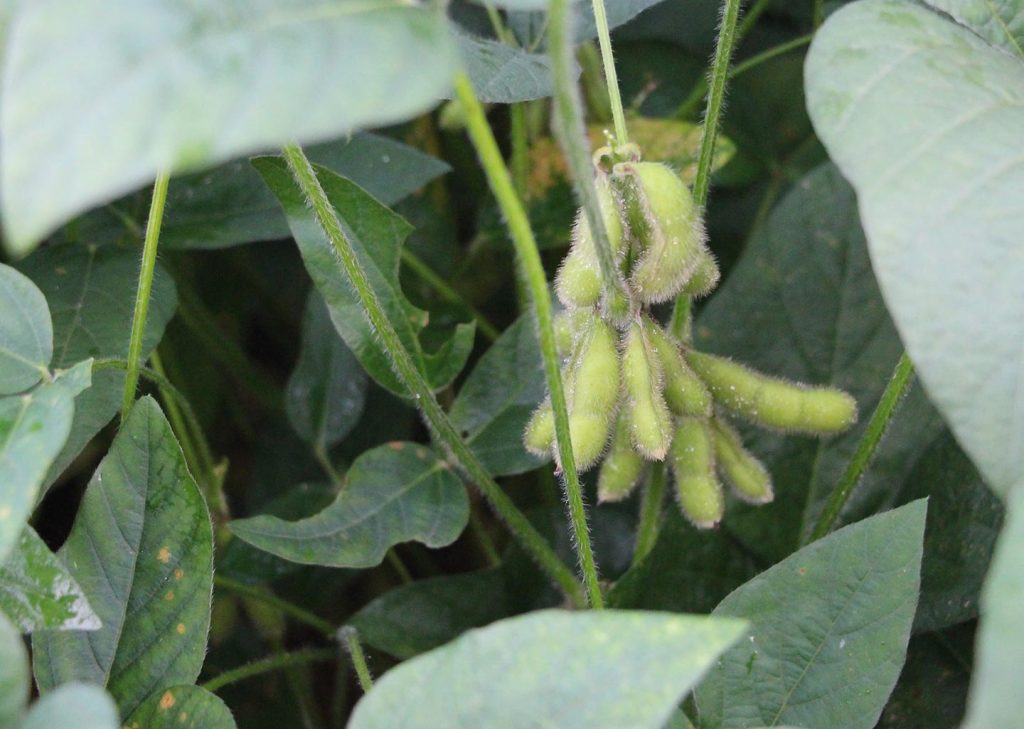
How do we ensure that soy is responsibly produced? Photo: WWF
The Issue
The modern food chain is largely dependent on soy. Soy is primarily used as fodder to feed food-producing animals. In the EU alone, as much as 90 percent of all imported soy is used as fodder to produce meat, dairy products, eggs and farmed fish. As global consumption of animal based products increases, global soy demand increases as well, especially in South America.
Deforestation and biodiversity loss
Commercial crops such as soy have a direct link to deforestation. As much as 10 percent of the global climate impact can be attributed to deforestation. Often, cultivation techniques of commercial soil involve the use of harmful chemicals, which cause damage to both human health and the environment. Deforestation combined with the use of agricultural chemicals has lead to widespread biodiversity loss, in for example South America where the majority of commercial soy is produced. With the loss of valuable biodiversity also comes the loss of important ecosystem services such as natural water systems and pollination. As problematic as soy production is, its cultivation contributes to economic development of many countries. Nonetheless violations of human rights, environmental consequences and land conflicts must be adressed.
Complex supply chains with poor transparency
Addressing production standards is often a challenge for Swedish companies. The long supply chain, poor transparency and low traceability make it difficult to adress breaches of production standards or conditions. Soy traceability is further complicated by it often being “embedded” in animal food products.
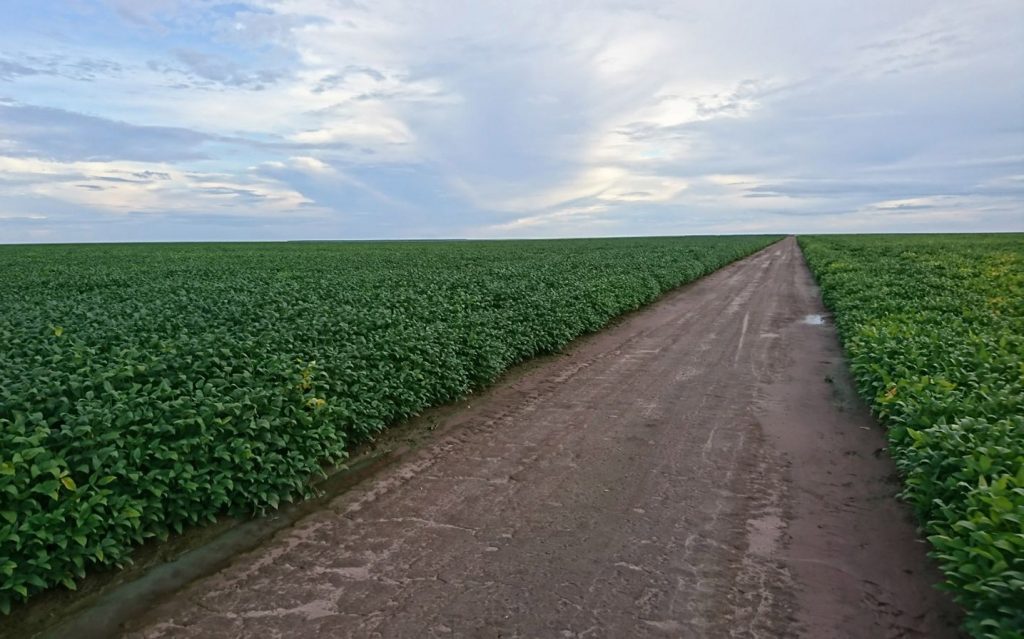
Soy production is directly linked to deforestation and biodiversity loss. Photo: WWF
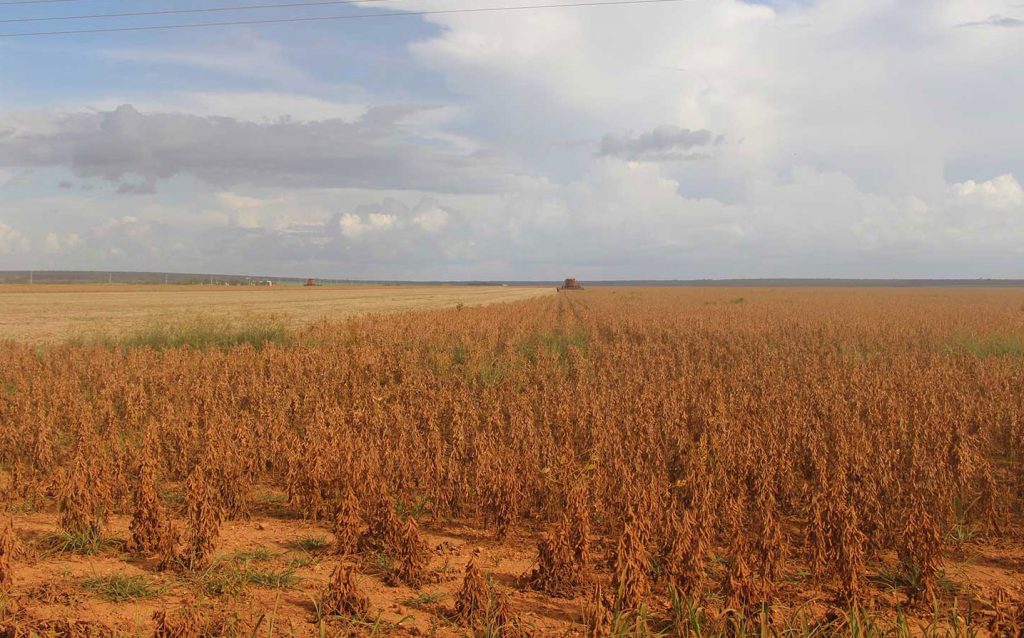
Photo: WWF
Our Solution
The Swedish Soy Dialogue was formed as a network in 2014 as a cross-sectoral initiative where members voluntarily contributed to the development of responsibly produced soy. The Swedish Soy Dialogue was an unique collaboration where Sweden, a small market on the international scale, created a united voice to improve the standard of soy production of its suppliers. Since 2022, the work is instead conducted via the new Swedish platform for high-risk commodities, hosted by ETI Sweden.
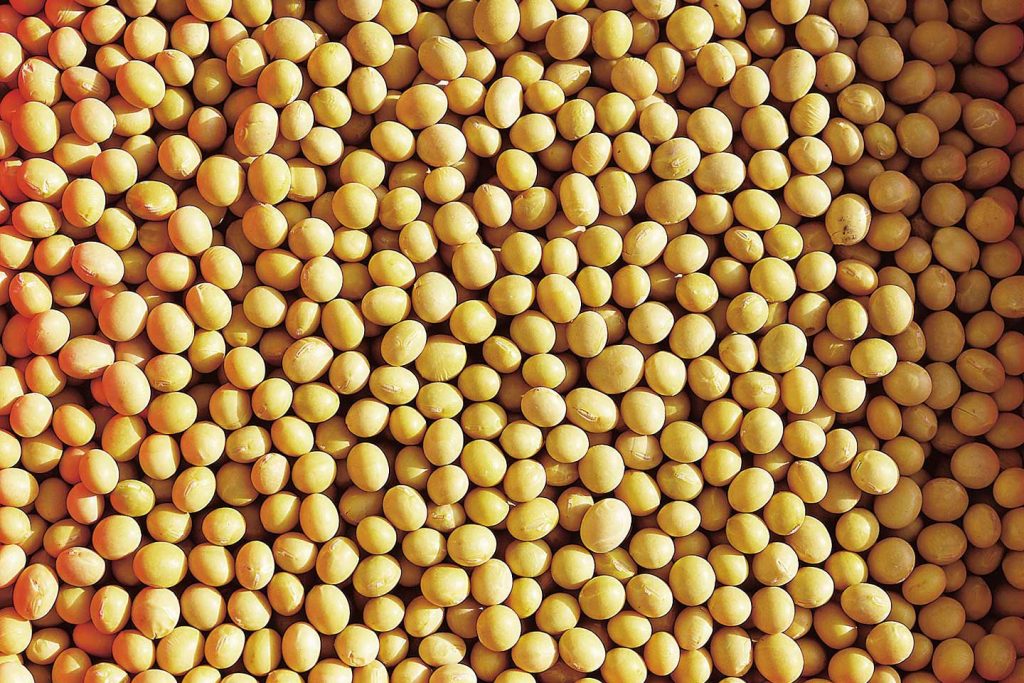
The Swedish Soy Dialogue approved certain certification systems: Photo: Wikipedia Commons
Results
The demands that were jointly developed and decided upon via the Swedish Soy Dialogue have created an important basis to stimulate more sustainable production both in South America and other high-risk areas. The work conducted within the Swedish Soy Dialogue, and that going forward will take place within the Swedish platform for high-risk commodities, also aims to contribute to developing a market for more sustainably produced soy. Responsible production includes criteria that protect nature, ecosystems and local communities, acceptable working conditions and the responsible use of agricultural chemicals. An important requirement is that the production of soy does not occur in ecologically valuable areas, or destroy important ecosystem services, and social or cultural values.
An important result of the Swedish Soy Dialogue was a common commitment my all members: The members of the Swedish Soy Dialogue commit, to the extent that they can influence actors within their own supply chain, to ensure responsibly produced soy, used as feed for the production of animal food and soy products for human consumption, regardless of whether the product has Swedish or foreign origin. Through the commitment, the members also assumed accountability that 100% of the soy used in their products are responsibly produced. This is achieved through soy certifications which ensure a trustworthy standard of production, or that the soy comes from a traceable origin that has been assessed to meet the criteria and verified by independent third parties.
Additional results of the Swedish Soy Dialogue are the common tools for soy calculation that were jointly developed. Moreover, members also agreed upon a number of certification systems that were jointly assessed as credible standards. At the end of 2021, these were: RTRS (Round Table on Responsible Soy); ProTerra; EU Organic; IFOAM and Donau Soja / Europe Soya.
Our Work
Between the years 2018-2021, Axfoundation hosted the Swedish Soy Dialogue and coordinated and thus developed the work in the network. Axfoundation together with WWF, The Swedish Food Federation and The Swedish Food Retailers Federation also initiated a process to broaden the work of the Swedish Soy Dialogue. A reference group consisting of a large number of companies and organizations also participated in this work, which led to the Swedish Soy Dialogue being transferred to the Swedish platform for high-risk commodities coordinated by ETI Sweden.
Partners
The Swedish Soy Dialogue represented a network of 50 Swedish members, representing feed companies, food producers, food retailers and interest groups throughout the supply chain, from farm to fork. The following companies were members of the Swedish Soy Dialogue at the end of 2021 and signed the joint commitment: Arla, Atria Sweden, Axfood, Bjärefågel, Coop; Dafgårds, Dahlberg Slakteri, Falköping Mejeri, Fazer, Fodercentralen, Fontana, Food for Progress, Fåddman, Ginsten Slakteri, Guldfågeln, Gäsene Mejeri, HKScan, ICA, Ingelsta Kalkon, AB Johan Hansson, KLF, KLS Ugglarps, Lärns Kycken, Knäreds Kycken , Lidl Sweden, Martin & Servera, MAX Burgers, Menigo, Norrmejerier, Norvida, Nyhléns Hugosons, Närkes Slakteri, Siljans Chark, Skånemejerier, Skövde Slakteri, Spannfod, Swedish Agro, Svenska Foder, Svenskt Butikskött, Vallberga Lantmän.
The following organizations were supporting members of the Swedish Soy Dialogue at the end of 2021: Axfoundation, Foder och Spannmål, KRAV, the Swedish Farmers’ Association, The Swedish Food Federation, Svensk Fågel, Svenska Ägg, Svenskt Kött, Svenska Köttföretagen, Sveriges Nötköttsproducenter, The National Agency for Public Procurement, WWF.
